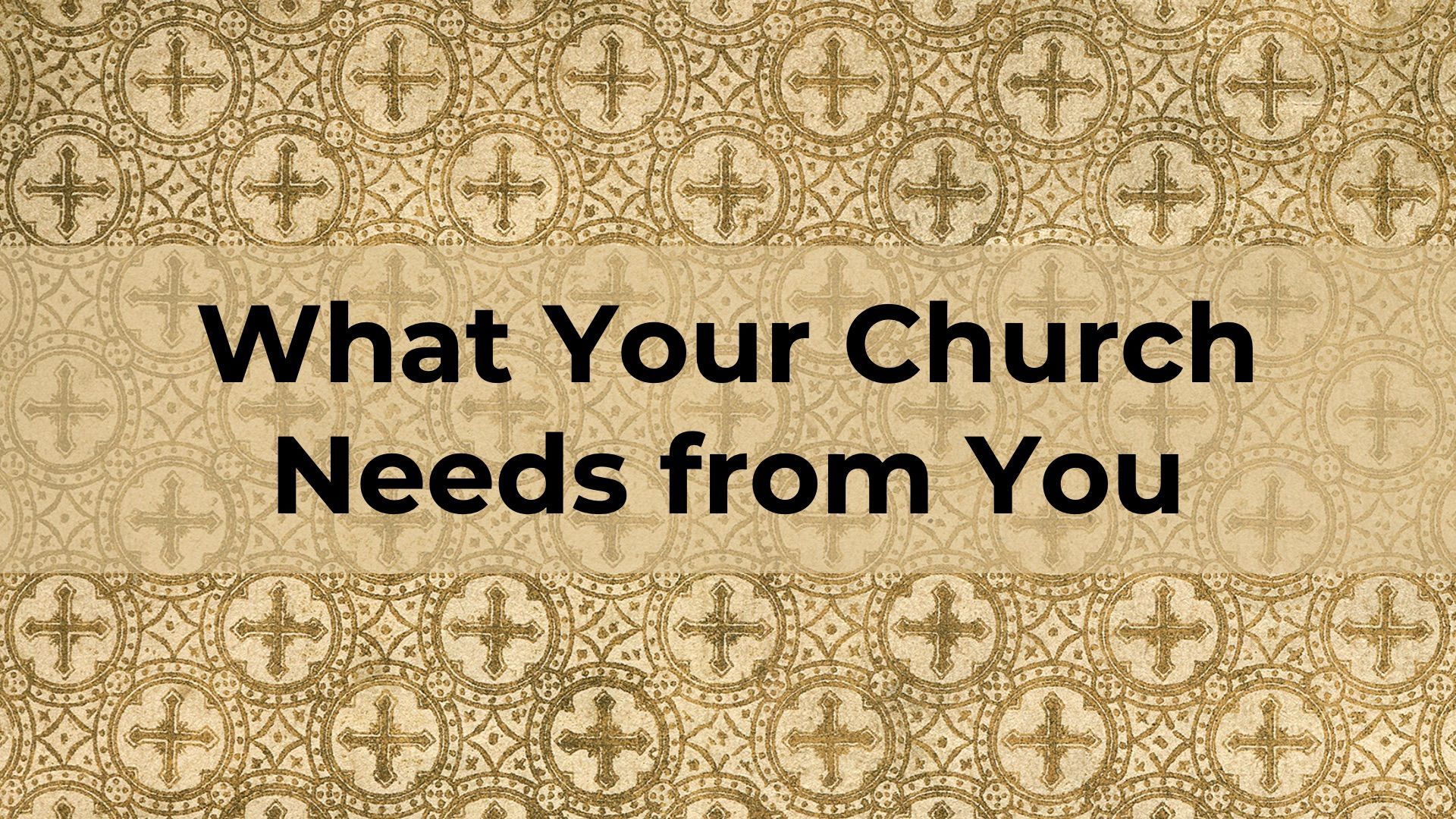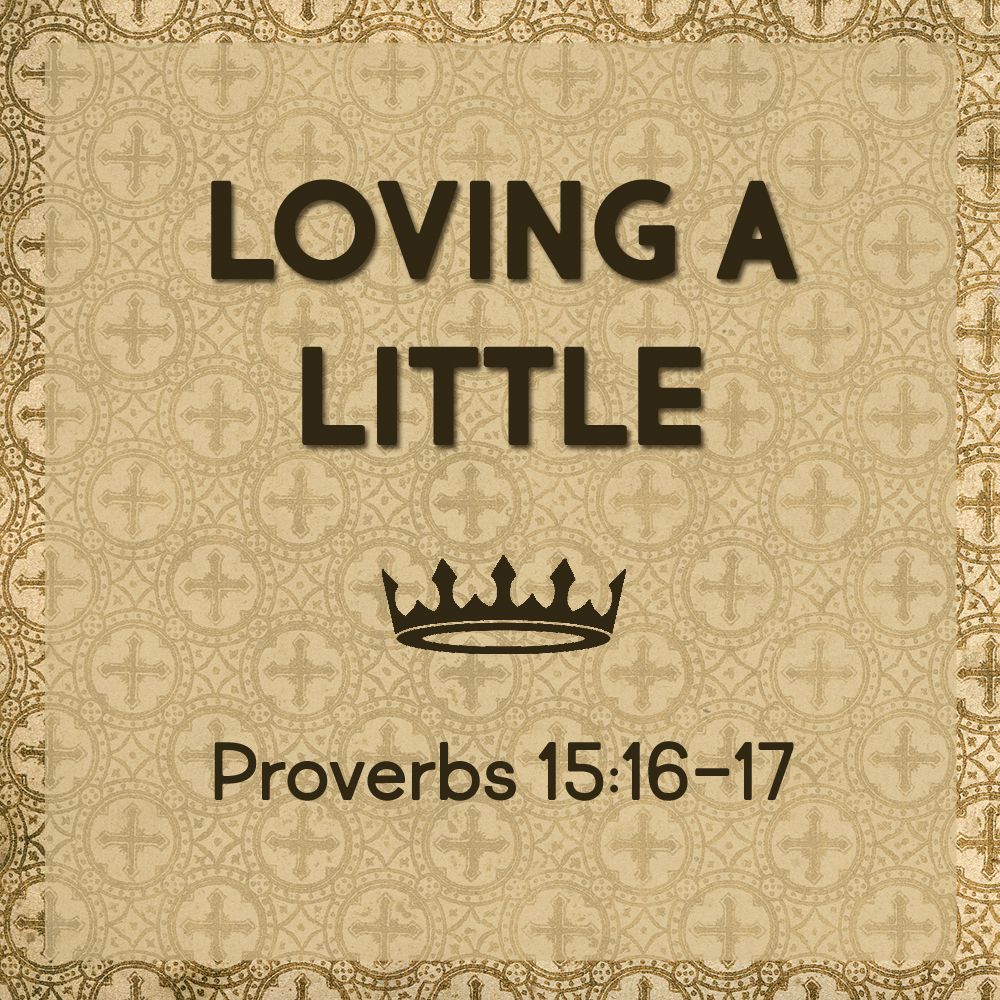The Ordinances: Baptism and the Lord’s Supper
In preaching through the Gospel of Mark on Sunday mornings, we arrived at Jesus’ “Last Supper” the last two weeks. You can’t reflect on the Lord’s final observance of the Passover meal, which commemorated the establishment of the Old Covenant, without also giving attention to the new Passover meal He was instituting to commemorate the establishment of the New Covenant: the Lord’s Supper.
While nothing in Matthew, Mark, or John gives any indication that some aspect of Jesus’ Last Supper is supposed to be repeated as a memorial in a similar fashion to the first Passover meal, Luke’s account does provide one such indication:
- And he took bread, and when he had given thanks, he broke it and gave it to them, saying, “This is my body, which is given for you. Do this in remembrance of me.” (Luke 22:19)
If this were all we had to go on, we’d be left with quite a few questions, such as (1) how frequently to observe the meal, (2) in what context, (3) with what elements, and (4) with what attitude. Thankfully, these questions are largely answered for us in the one place in the Bible where the Lord’s Supper is directly referenced: 1 Corinthians 10–11.
However, there are still questions about this practice that are not explicitly answered in those two chapters, thus requiring us to make deductions from everything we find in the Scriptures. Having addressed some of those matters in our times together this last Sunday morning and evening, there is one specific matter that I would like to dwell on further: the relationship between water baptism and the Lord’s Supper.
There are numerous means of grace that God has instituted for our spiritual growth, including the reading and study of Scripture, prayer, singing, and regularly gathering together for each of these means and for the public proclamation of God’s Word. Of the means of grace that God has instituted, water baptism and the Lord’s Supper are often set apart from the rest and uniquely labeled as either “ordinances” or “sacraments”.
As I explained on Sunday evening, I avoid using the term “sacrament” due to its close association with the sacramental system of the Roman Catholic Church, which wrongly teaches that four sacraments in particular are actually “necessary for salvation”, claiming they impart saving grace rather than merely sanctifying and sustaining grace, while God’s Word unambiguously teaches that saving grace can only be received through faith, not rituals (e.g., Rom 3:21-26).
Instead, when referring to water baptism and the Lord’s Supper together, I prefer to either use the term “ordinance” (which simply means command) or “rite” (which simply means ceremony), both of which are found in relation to the Old Covenant ordinance/rite of the Passover meal in Exodus 12:24 (depending on the translation).
So, what is the relationship between the only two ordinances/rites of the New Covenant?
Clearly, one major difference is that we are only baptized once, while we partake of the Lord’s Supper every Lord’s day (1 Cor 11:18-20; 16:1-2; Acts 20:7; Rev 1:10). Why aren’t we baptized every week, or once a year, or every time we are newly convicted about our need to follow Jesus more faithfully? The reason we aren’t baptized multiple times is because we aren’t converted multiple times. That is, we experience the new birth and are brought from spiritual death to spiritual life the moment we first place our trust in Christ for the forgiveness of our sins, and that only ever happens once in a person’s life (Acts 10:47-48; Gal 3:2). Baptism is closely connected with conversion, picturing our new birth (Rom 6:1-4) and declaring to others that we have been united with Christ through faith and are now members of the New Covenant (Acts 2:37-41).
The Lord’s Supper, on the other hand, is not designed to picture our conversion, but rather to picture the sacrifice of Christ by which we have been saved. While baptism declares and celebrates our initial entrance into a covenant relationship with God, the Lord’s Supper declares and celebrates that ongoing relationship. This is one of the reasons why a Christan’s observance of baptism should precede their observance of the Lord’s Supper: we must first declare ourselves to be part of the covenant family before we take our seat at the family table. Like the Passover meal that was being observed when the Lord’s Supper was first instituted, both are clearly covenant meals, which is to say that they are designed to commemorate the establishment of a covenant between God and a particular group of people and are thus reserved for those who have publicly identified themselves as members of the covenant being commemorated, whether through circumcision (Exodus 12:48) or baptism (Acts 2:41), respectively.
The ordinance of baptism is so closely associated with conversion that the Apostles can use the language and imagery of baptism as shorthand for our entire conversion experience (Rom 6:1-4; 1 Cor 12:13; Gal 3:26-27; Col 2:11-12; 1 Pet 3:21). There is simply no category in the New Testament for a believer who has not been baptized. The very first aspect of disciple-making that is enumerated in the great commission is baptism:
- And Jesus came and said to them, “All authority in heaven and on earth has been given to me. Go therefore and make disciples of all nations, baptizing them in the name of the Father and of the Son and of the Holy Spirit, teaching them to observe all that I have commanded you. And behold, I am with you always, to the end of the age.” (Matthew 28:18-20)
Then, we read this in the only passage that gives us direct instructions regarding our observance of the Lord’s Supper:
- Whoever, therefore, eats the bread or drinks the cup of the Lord in an unworthy manner will be guilty concerning the body and blood of the Lord. Let a person examine himself, then, and so eat of the bread and drink of the cup. For anyone who eats and drinks without discerning the body eats and drinks judgment on himself. That is why many of you are weak and ill, and some have died. But if we judged ourselves truly, we would not be judged. But when we are judged by the Lord, we are disciplined so that we may not be condemned along with the world. (1 Cor 11:27-32)
The Lord’s Supper is for the self-examined, repentant believer. To knowingly refuse to obey one of Christ’s commands is sinful, and Christ has commanded that we be baptized (Matt 28:19; Acts 2:37-41; 10:48). Thus, to partake of the Lord’s Supper while refusing to obey this command to be baptized would be to partake in an unworthy manner, and thus to invite God’s judgment. This is why we lovingly call all people to place their trust in Christ, to repent of their sin, to be baptized, and then to come the table.
Let us give thanks for every means of grace that God has given to us, seizing hold of each one as we heed the instructions of the Giver of these gifts.
Blessings in Christ,
Pastor Evan



